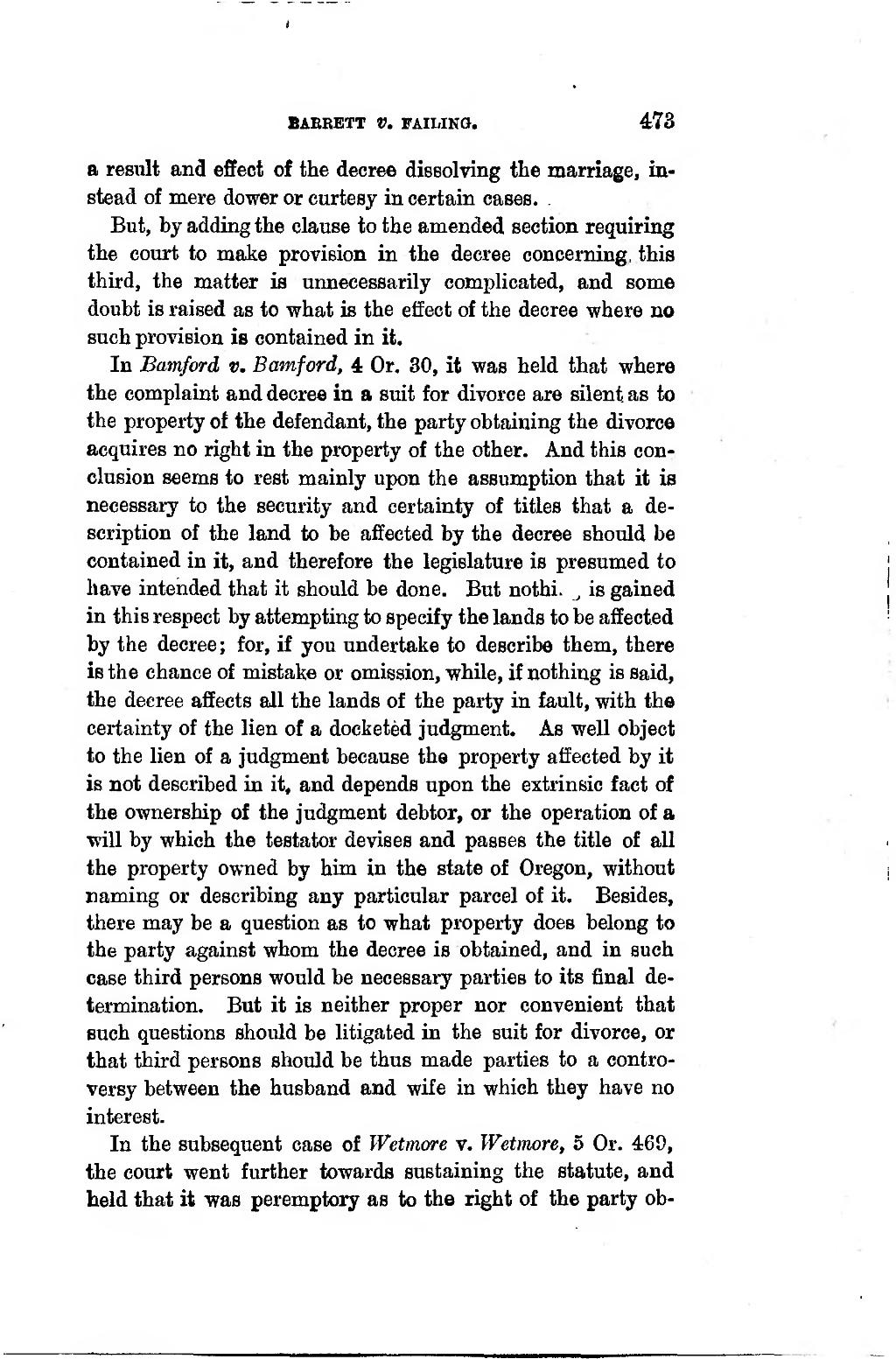BAERBTT V. FAILINO. e73 �a resuit and effect of the decree dissolving the marriage, in- Btead of mere dower or curtesy in certain cases. �But, by adding the clause to the amended section requiring the court to make provision in the decree concerning, this third, the matter is unnecessarily oomplicated, and some doubt is raised as to what is the effect of the decree where no such provision is contained in it. �In Bamford v. Bamford, i Or. 30, it -was held that where the complaint and decree in a suit for divorce are silent as to the property of the defendant, the party obtaining the divorce acquires no right in the property of the other. And this con- clusion seems to rest mainly upon the assumption that it is necessary to the security and certainty of titles that a de- scription of the land to be afïected by the decree should be contained in it, and therefore the legislature is presumed to have intended that it should be done. But nothi. ^ is gained in this respect by attempting to specify the lands to be affected by the decree ; for, if you undertake to describe them, there isthe chance of mistake or omission, while, if uothing is said, the decree affects ail the lands of the party in fault, with the certainty of the lien of a docketed judgment. As well object to the lien of a judgment because the property affected by it is not described in it, and depends upon the extrinsic fact of the ownership of the judgment debtor, or the operation of a •will by which the testator devises and passes the title of ail the property owned by him in the state of Oregon, without naming or describing any particular parcel of it. Besides, there may be a question as to what property does belong to the party against whom the decree is obtained, and in such case third persons would be necessary parties to its final de- termination. But it is neither proper nor convenient that such questions should be litigated in the suit for divorce, or that third persons should be thus made parties to a contro- versy between the husband and wife in which they have no interest. �In the subsequent case of Wetmore v. Wetmore, 5 Or. 469, the court went further towards sustaining the statute, and held that it was peremptory as to the right of the party ob- ����
